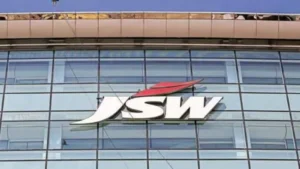Global equity managers braced for a severe China slowdown that undermined the outlook for companies elsewhere dependent on the world’s second-largest economy.
Once the most promising bet of the year, China-related investments have turned into a disaster as the property market slump threatens to turn into a systemic crisis. While the sell-off has so far focused on Chinese stocks, pressure is mounting on stocks in Europe, the United States and other parts of Asia, where their business has been affected. by demand for China.
Caterpillar Inc. and Dupont de Nemours Inc. is among the long list of companies that have sounded the alarm in their latest earnings reports. With China’s growth forecast broken, investors are looking for ways to mitigate risk to their portfolios. The MSCI index, which tracks global companies with the most exposure to China, has fallen about 10% this month, double the drop in a broader gauge for global equities, while strategists at Bank of America Corp. US stocks fell another 4% as the woes intensified. .
“Honestly, the whole world is closely tied to China. Jason Hsu, investment director at Rayliant Global Advisors, said major global companies sell to China or source from China. “These companies will need to significantly scale down their revenue from China over the next 12 months.”
Investor, business and consumer confidence in China’s economic outlook is rapidly declining after a series of negative headlines this week – from dismal economic data to giant shadow banking. Zhongzhi Enterprise Group Co halted payments to thousands of customers and real estate group Pays Garden Holdings Co. is approaching the possibility of default on government bonds.
Growing concerns have sent equity benchmarks in Hong Kong and China to their lowest levels since November, with the Hang Seng index entering a bear market on Friday. And given the country’s dominant position in global supply chains, worries are also starting to affect investor sentiment in Europe and the United States, with stock markets in both regions witnessing the biggest drop since March.
Rajeev De Mello, global macro portfolio manager at Geneva-based Gama Asset Management SA, said “multiple asset classes will be affected” unless Beijing introduces more supportive policies, It also added that it has reduced its exposure to European equities, commodities, gold and emerging currencies. Here are some global sectors and companies that are vulnerable to the crisis in China:
minors
Miners have taken on the growing risks of China as the country is a major global consumer of iron ore, a key commodity for major miners. With a 19% drop, the Stoxx 600 Basic Resources index has been the worst performing index in Europe this year. Large-cap miners Anglo American Plc, Glencore Plc and Rio Tinto Plc are down 20-40%.
Rio Tinto and Australian giant BHP Group Ltd. get 50-60% of their revenue from China, while Glencore and Anglo American have more than 20% exposure, according to data compiled by Bloomberg. “The weakening Chinese economy could lead to weak marginal demand for certain commodities and imports,” said Vivian Lin Thurston, portfolio manager at William Blair Investment in Chicago. . “We are watching for any meaningful and specific potential stimulus coming to China.”
Advance product
Luxury goods companies such as bag maker Louis Vuitton LVMH, Gucci owner Kering SA and Hermes International are particularly vulnerable to any shift in Chinese demand, as the country accounts for between 17% and 20% of their annual revenue, according to data from Goldman. Sachs Group
Shares in the sector jumped earlier this year as the industry’s high-end clients were less affected by lingering inflation. But LVMH, Kering, Hermes, Richemont, Swatch Group and Moncler SpA lost a total market capitalization of $86 billion between this month and Friday as growth risks in China increased.
Semiconductors
American chipmakers like Nvidia Corp. and Qualcomm Inc. generates most of their revenue in China, according to data compiled by Morgan Stanley. The sector has been hit by the escalating Sino-US technology war this year, with export controls exacerbating supply chain problems as much of the world’s electronics and components world passing through Chinese factories. Industrial machinery
Japan’s machinery and factory automation companies have had a poor earnings season, largely due to weak capital spending in China. Factory automation equipment manufacturer Fanuc Corp. cut its full-year operating profit forecast, citing weaker-than-expected demand from China.
Morgan Stanley analysts this week downgraded the Japanese stock sectors hardest hit by the China slowdown, adjusting machinery to lower levels and electrical appliances equivalent weight.
“Investors may become reluctant to allocate capital to China due to concerns about an economic slowdown and potential drop in returns,” said Manish Bhargava, a fund manager at Straits Investment Holdings in Singapore. “China’s recessionary conditions could have far-reaching consequences for monetary policy, trading partners and investor sentiment.”
While stocks were once again supported by AI frenzy this year, optimism could be offset by a drop in global smartphone shipments, which was fueled by high spending. Consumption is weak in China.





